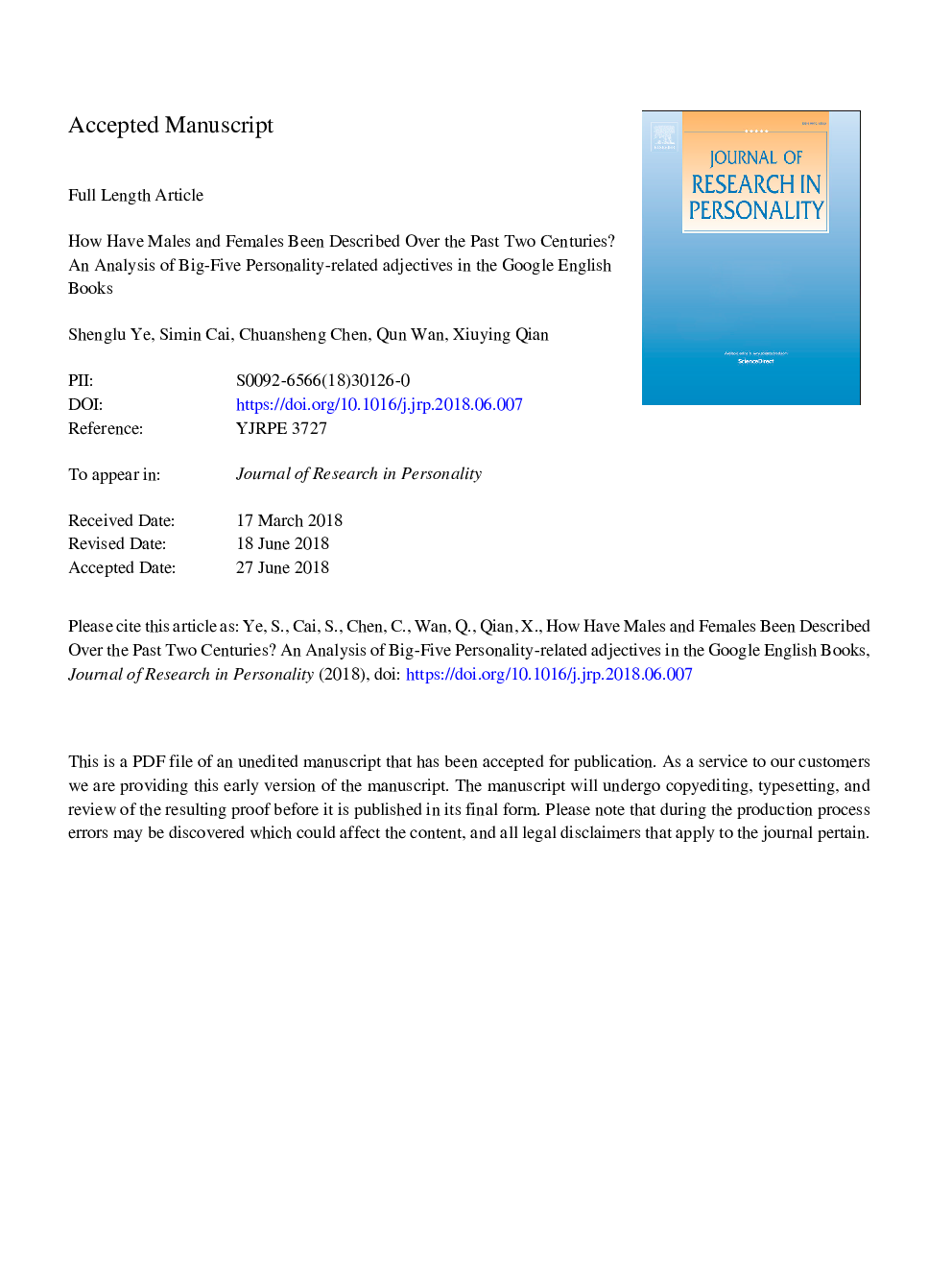| Article ID | Journal | Published Year | Pages | File Type |
|---|---|---|---|---|
| 7326254 | Journal of Research in Personality | 2018 | 37 Pages |
Abstract
Using the American corpus and the English fiction corpus from Google Books databases, this study examined the frequencies of Big-Five personality adjectives used to describe the two genders between 1800 and 2000. Both gender similarities and differences were found. For both genders, adjectives related to agreeableness were used most often and those related to neuroticism least often. The usage frequency of agreeableness showed a steady decline, whereas extraversion and openness (and, to some extent, neuroticism) showed increases first and then leveled off. In terms of gender differences, the overall frequencies were higher for men than women for agreeableness, extraversion, conscientiousness, and neuroticism, but there was no gender difference for openness. Gender differences showed some reduction over time.
Related Topics
Life Sciences
Neuroscience
Behavioral Neuroscience
Authors
Shenglu Ye, Simin Cai, Chuansheng Chen, Qun Wan, Xiuying Qian,
